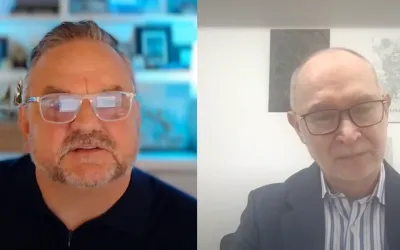
What Are Japanese Pharmaceutical Candidates Thinking?
What are the most important factors for candidates when interviewing with multinational companies in Tokyo, Japan? Morunda interviewed 120 candidates who have interviewed with multinational pharmaceutical companies in Tokyo within the past 24 months. Our survey (Table 1) asked which of the following factors were the most and least important to candidates. The attributes surveyed were the attractiveness of the company’s product pipeline, the line manager the candidate would report to, the senior leadership of the company, HR and how they presented the company, location in Tokyo, possible career path, the size of the company in Japan and globally, and the location of HQ.
For the majority of candidates, the most important factor is the product pipeline, with 65% of candidates ranking it as very important. When we asked the candidates to rank the attributes from 1 to 9 (with 1 being the most important), 56% of candidates placed product pipeline as number 1 and number 2 in their list, with a further 23% placing the future products of the company as their third-highest priority when considering a new company.
As the candidates are studying and analyzing the pipeline of the prospective company, they also have a deep interest in whom they will be reporting to; 43% of candidates placed this in their top two concerns with an additional 30% placing it in third position. In addition, 43% of those surveyed placed the overall leadership, country manager, or department head in their top three priorities.
Clearly, companies that don’t have an attractive pipeline with leadership who can attract Japan’s best and brightest in the pharma industry will have a tough time hiring in the world’s second-largest pharma market.
As well as putting their best foot forward, hiring managers should explain in detail the pipeline, indications, and the potential of those products. Hiring managers and HR should also clearly explain the career path of the position for which the candidate is interviewing. One-third of respondents placed career path in their top two concerns.
Less important factors than some might think included the size of the company and whether the company was based in the United States or Europe. For 16% of the respondents, the location of the company in Tokyo was important, while their interaction and introduction of the company by HR didn’t appear to be a driving factor.
A clear strategy should be put in place for companies wanting to hire the best available talent, ensuring that the company’s pipeline and career path are clearly explained and that the hiring manager plays a central role in the recruiting process. It has been our observation through 10 years of recruiting experience that true leaders go the extra mile in terms of recruiting, whether the hiring manager calls the candidates, meets them for an additional meeting, or takes the candidate to dinner. They know that spending extra time during the interview process and when the offer has been extended increases the chances of landing the best talent, decreases the likelihood of the offer being rejected, and saves time and money.
HR can analyze the recruiting process and make recommendations to line managers and agencies on how to ensure a smooth process and add real value by explaining the potential career path and pipeline, and edifying the leadership of the company.
The leading companies are fully aware that the candidates are interviewing them as much as they are interviewing the candidates.
Table 1 – Ranking
Recent Posts
- Time Kills Deals: Why Speed is Your Most Powerful Hiring Tool
- Beyond the Paycheck: The Four Pillars of Attracting Top Talent in 2026
- The Experience Premium: Why 55 is the New 40 in Tokyo
- Beyond the “Black Swan”: Why Life Science Firms Must Pivot from Perfection to Potential in 2026
- The “Player-Coach” Era: Why Your Technical Pedigree is No Longer Enough



